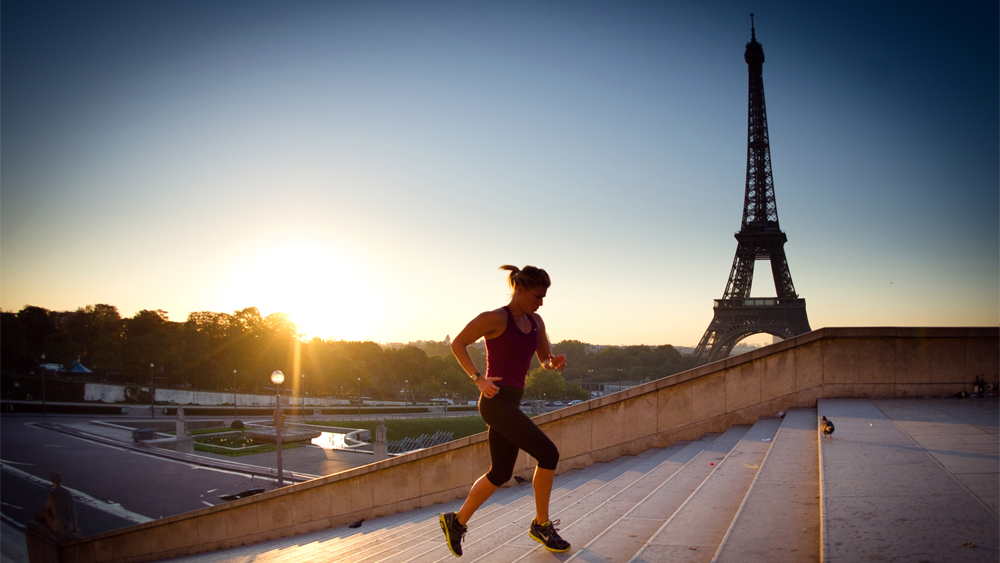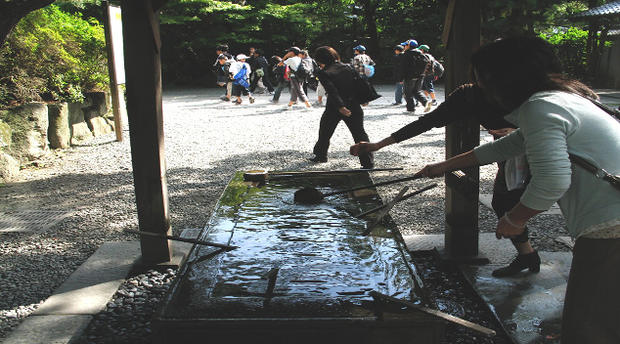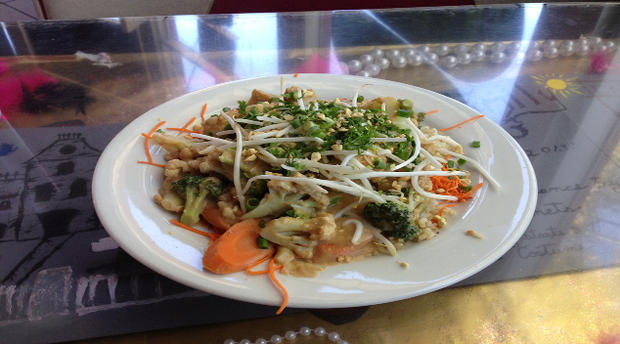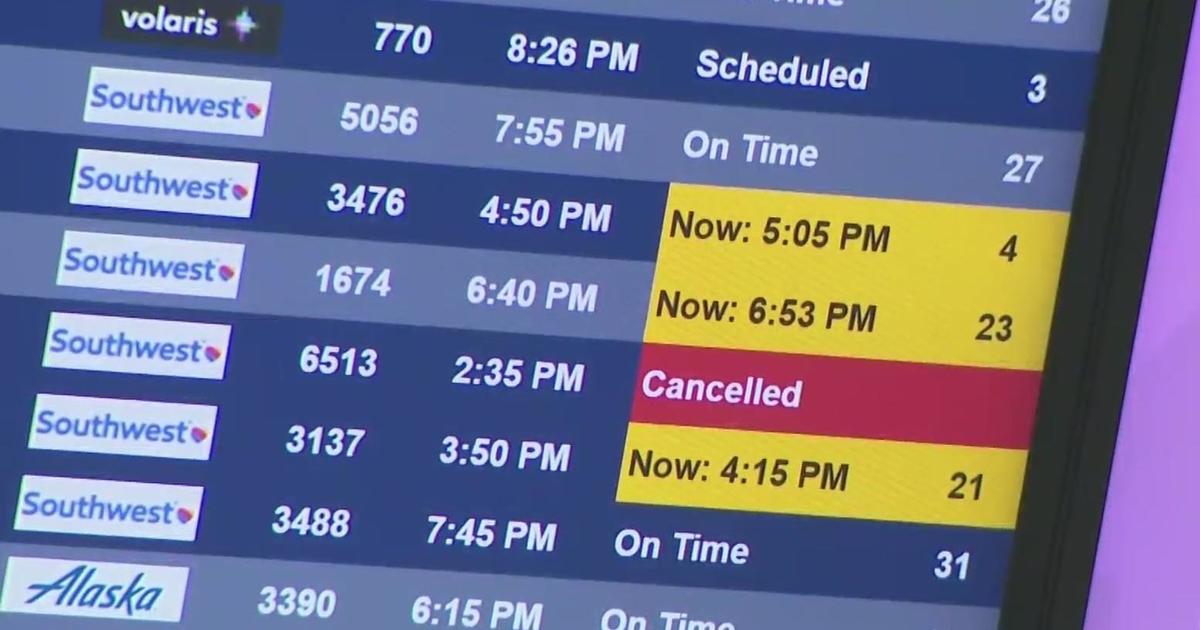How To Stay Healthy While Traveling
 (credit: MARTIN BUREAU/AFP/Getty Images)
(credit: MARTIN BUREAU/AFP/Getty Images)
No one wants to get sick while traveling but invariably, it does happen. Whether it's a business trip, vacationing with family or solo venturing, there's nothing much worse than feeling under the weather or having an upset stomach from unhealthy foods. While it's easy to grab a quick bite before a business meeting or stop at a fast food store, there's an abundance of better food options and preventative measures to help make traveling a better experience simply by observing these 10 tips to stay healthy while traveling.
It's helpful to prepare a medical history list for anyone traveling, regardless if the trip is solo or an entire family. A sample list may include names, addresses, contact information, a complete list of health issues, current medication and emergency contact information. Credit and debit card information should also be listed on a separate page and a copy of the itinerary should be left with a friend or family member. If traveling abroad, it's also helpful to have a photocopy of each U.S. passport and bankcard, in addition to knowing the location of the American Embassy or Consulate.
Regardless of destination, travelers should be aware of any travel alerts, especially for children, pregnant women and people living with a chronic disease. The Center for Disease Control and Prevention (CDC) maintains a Travelers' Health page for medical advice and travel notices. Vacationers embarking on a cruise ship should also check for outbreak updates, particularly during the flu season, which typically runs through March.
Travelers should ensure vaccinations are up to date and this is most important to those living with a chronic disease, pregnant women and children. International travelers should visit the CDC Travel Health site for recommendations and requirements prior to traveling abroad. Additionally, the CDC recommends getting vaccines at least four to six weeks in advance of a trip to help build immunity.
4.) Washing Hands
The best prevention from the common cold and flu is by frequently washing hands with soap and water or using an alcohol-based hand gel such as Purell. This is especially important when walking through large crowds of people, such as at business conferences, airports, train stations and public transportation. Much has been discussed about whether antibacterial gels are effective, but most hand sanitizers on the market today include at least 60 percent alcohol and can greatly reduce the number of most germs on hands. According to the CDC, hand sanitizers with at least 60 percent alcohol are effective in killing the H1N1 virus.
5.) Eat Well and Stay Hydrated
On many occasions, businesspeople and tourists will dine in at restaurants with menu items laden with butter or salads filled with croutons high in sodium, carbohydrates and fat, along with a creamy salad dressings high in fat and calories. Healthier alternatives can be requested and entrees like chicken, lean meat and some seafood are better choice. Food items described as steamed, broiled, grilled, poached or roasted are generally better choices than something creamed, buttered, sautéed or pan-fried.
Whenever possible, it helps to pack healthy snacks, such as trail mix, carrots and celery, and less sugary fruits like raspberries, cranberries and blackberries, while staying away from sugary fruits like grapes, bananas and cherries. If available, an excellent source of healthy foods while traveling can be found at the local farmer's market. Many hotels offer complimentary breakfast but unhealthy options like bagels, pastries, muffin and sugary fruit juices should be limited or avoided.
Drinking a sufficient amount of water is essential in staying healthy in a number of ways, including regulating body temperature, transporting oxygen to cells and protecting joints and organs. On the other hand, drinking alcohol or caffeinated drinks dehydrates the body, which can lead to headaches, lethargy, increased thirst and dry mouth in the early stages of dehydration.
6.) Exercise
Many sightseeing excursions involve plenty of walking but that's not always the case when traveling. Business trips may involve sitting for a significant time of the day before heading out for the obligatory dinner and perhaps wine and spirits, without much walking. Savvy business travelers book hotels equipped with a gym or pool, but if time is limited, simple exercises can be performed inside the guest room or outdoors. No matter what type of travel, most anyone can do body weight exercises, ranging from slightly challenging like jumping jacks and pushups to easier like floor bridges, leg tucks and flexibility exercises like yoga, leg swings and arm rotations. If practical, travelers looking for a simple form of exercise can ditch the elevator and take the stairs, as long as it's manageable.
Sitting in an airplane, vehicle or even in a long business meeting can be troublesome to the back, shoulders, neck and legs but can be far more serious with a risk of blood clots when sitting more than four hours, particularly for pregnant women and the elderly. According to a recent medical study, sitting in an aisle seat onboard an airplane may lower the risk of developing blood clots, but there's no difference in risk between economy or first class seating. Regardless if it's flying or traveling on the road, it's important to get up and walk around whenever possible. Other tips include not crossing the legs, performing toe points and ankle circle exercises, avoiding or limiting alcohol, staying hydrated and wearing loose-fitting clothing.
With or without children, some first aid supplies should be packed before heading out on a trip, even if it's a few carry-on items at airports. People vacationing by car can bring along a first aid kit sold at any pharmacy and many retail stores. Typical supplies are bandages, cold compress, antiseptic towelettes, antibacterial cream, burn cream, insect bite wipes and over-the-counter medicines, such as ibuprofen, acetaminophen and antihistamines. A good source of first aid supplies can be found through the American Red Cross, which sells a number of kits and related accessories.
The average person needs about seven to eight hours but sometimes it's difficult to get adequate rest on a trip. Children who might be too restless or anxious the night before a big outing like a trip to Disneyland are encouraged to get as much rest possible the night before. Regardless, getting a good night's sleep is absolutely necessary for any type of traveler. For the business traveler, a lack of sleep may result in reduction in performance and alertness and no one wants to have a day ruined by feeling sleepy. Some useful tips include going to bed at the same time each night, ensuring a room is quiet and comfortable and going to bed earlier in the event of a change in time zones.
One of the most important reasons to get enough rest during a trip is staying alert if operating a motor vehicle or staying more aware of one's surroundings, particularly in unfamiliar places while avoiding pickpockets. But safety begins even before leaving on a trip by performing a few duties, like stopping newspaper and mail deliveries, securing the home and leaving emergency contact information with a trusted friend or family member.
With the emergence of social media, posting information about a vacation and the length of it without having someone watch the home can potentially be big trouble. Studies suggest more than 75 percent of burglars scour social media posts before breaking into a home. Another social media-related issue is "checking in" to a location, indicating an individual is far away from home. For business travelers, laptops are practically a necessity but by avoiding public Wi-Fi networks and regularly updating anti-virus and anti-spyware software, the risk of hacking is greatly reduced, as it the potential anxiety and stress it could cause.
Randy Yagi is a freelance writer covering all things San Francisco. In 2012, he was awarded a Media Fellowship from Stanford University. His work can be found on Examiner.com Examiner.com.






